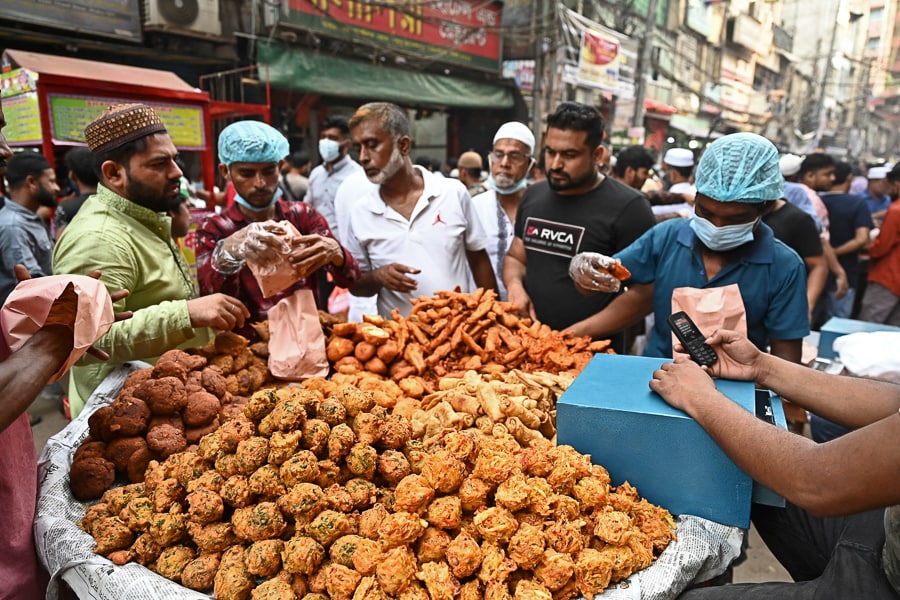
Sweet smell of Ramadan tempts as Muslims begin fast
From the centuries-old Chawkbazar market in Bangladesh to the streets of New Delhi's resplendent Jama Masjid, evening crowds are tempted by the scent of syrupy sweets and hefty rice plates, as more than half a billion Muslims across southern Asia break the day's Ramadan fast
 Muslim devotees buy food at a market on the first day of the holy fasting month of Ramadan in Dhaka. Image: Munir uz zaman / AFP
Muslim devotees buy food at a market on the first day of the holy fasting month of Ramadan in Dhaka. Image: Munir uz zaman / AFP
Mosques and market streets teem with evening crowds tempted by the scent of syrupy sweets and hefty rice plates, as more than half a billion Muslims across southern Asia break the day's Ramadan fast.
The Islamic holy month began over the weekend and during that time believers abstain from eating, drinking, smoking, and sexual relations between sunrise and sunset.
The fast is conceived as a spiritual struggle against the seduction of earthly pleasures—but for the nightly "iftar" meal, festive meals traditionally bring families together and there is intense social activity.
The centuries-old Chawkbazar market in Bangladesh is a traditional centre for evening meet-ups during Ramadan, with hundreds of makeshift food stalls selling traditional grilled meats and delicacies.
Huge crowds returned to the neighbourhood on Sunday for the first time since the coronavirus pandemic put a pin in large public gatherings.







